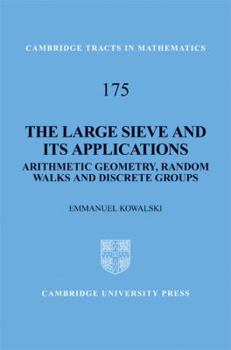The Large Sieve and its Applications
(Book #175 in the Cambridge Tracts in Mathematics Series)
Among the modern methods used to study prime numbers, the 'sieve' has been one of the most efficient. Originally conceived by Linnik in 1941, the 'large sieve' has developed extensively since the 1960s, with a recent realisation that the underlying principles were capable of applications going well beyond prime number theory. This book develops a general form of sieve inequality, and describes its varied applications, including the study of families of zeta functions of algebraic curves over finite fields; arithmetic properties of characteristic polynomials of random unimodular matrices; homological properties of random 3-manifolds; and the average number of primes dividing the denominators of rational points on elliptic curves. Also covered in detail are the tools of harmonic analysis used to implement the forms of the large sieve inequality, including the Riemann Hypothesis over finite fields, and Property (T) or Property (tau) for discrete groups.
Format:Hardcover
Language:English
ISBN:0521888514
ISBN13:9780521888516
Release Date:July 2008
Publisher:Cambridge University Press
Length:316 Pages
Weight:1.40 lbs.
Dimensions:0.9" x 5.9" x 9.0"
Customer Reviews
0 rating





